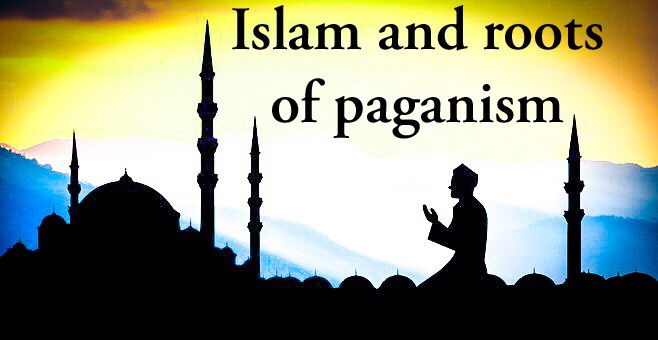Roots of pagan Islam & Polytheist founder, Muhammad


Research in the comparative religion field shows that the cult of Islam has nothing new. Every practice and idea has been borrowed from Pagans, Jews and Hindus which existed for centuries before polytheist Muhammad became a successful salesman. If one must present a counter argument, perhaps they could claim that the one new thing about the seventh century desert cult is the salesman-prophet who started the entire jihadi process. And also invented the devil along the way.
زیارت بت پرست است
اسلام یک آیین بت پرست است
خیرات یک عمل هندو است
زیارت بت پرست است یهودی است
نماز جهانی است
محمد مشرک بود
Over time, practices such as covering one’s self in black burlap sack, female genitalia mutilation, ad hoc sharia “justice” system, a 360 on first accepting the 3 female goddesses – Al-Uzza, Al-Lat and Manat – as part of Islam by then Pagan Muhammad but then u-turning on it, and blaming the imaginary devil for whispering the satanic versus in his ear is novel in Islam.
In conclusion, Salesman Mohammed, later known as the prophet is the only thing that is new in Islam. Muhammad was a Pagan. He believed in the gods and goddesses which were famous and worshipped in Arabia. Everything except Muhammad in Islam comes from Pagan, Jewish and Hindu traditions. So except for the schizophrenic “visions” during a seizure in the desert, Islam practically is a desert Pagan cult. Though Muslims will continue to be in denial.
Image Source: Internet/Maz Bozorgi
DISCLAIMER: The author is solely responsible for the views expressed in this article. The author carries the responsibility for citing and/or licensing of images utilized within the text.
